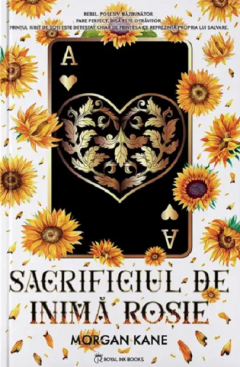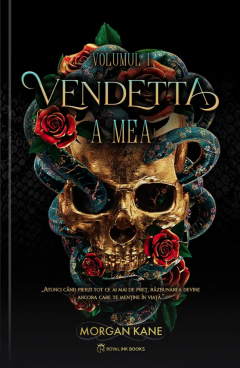Să îți găsești sufletul pereche? Bifat.
Să fii crunt trădată? Bifat.
Să ai inima frântă? Bifat.
După trei ani de la plecarea lui Mabus, Fathya a făcut din minciună o artă. Zâmbetul îi e mereu fals, iar fericirea – ceva străin și îndepărtat.
Trădată de bărbatul iubit, ea doar supraviețuiește de la o zi la alta. Tot ce face e să lupte din răsputeri să devină cea mai bună variantă a sa.
Rănită și cu încrederea la pământ, ajunge pionul principal într-un joc de putere.
Este răpită și dusă pe teritoriul inamic, însă nimic nu ar fi putut s-o pregătească pentru ceea ce găsește acolo.
Pe el.
Mai detașat. Mai necruțător. Mai determinat.
Bărbatul care o răpește este și cel care îi întregește inima frântă. O forțează într-o căsătorie cu el și o face regină peste întreaga lui lume.
Dar pentru Fathya nu este de ajuns.
Ea vrea totul – o iubire veșnică, o familie fericită și o lume lipsită de amenințări.
Iar pentru toate aceste dorințe ale ei, el pornește un război cu final incert.





